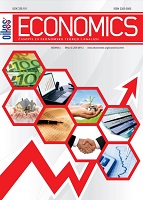Nova ekonomija i društvo zasnovano na znanju: U svetlu koncepta održivog razvoja
Knowledge-Based New Economy and Society: With Regards to the Sustainable Development Concept
Author(s): Petar ĐukićSubject(s): Economy, Social development, Economic development, ICT Information and Communications Technologies
Published by: Oikos institut-Istraživački centar Bijeljina
Keywords: production factors; economic development; modern and traditional technologies; knowledge organization; information; transition; reform of SEE countries;
Summary/Abstract: f knowledge-based economy is the actual secret of modern social development, then there is no dilemma regarding which production factor is dominant in today’s structure and composition of the sources of economic activity and progress. The information is a part of knowledge and cognition that covers a much wider area of social reality than an aggregate economic activity as measured by Gross Domestic Product. Once new theoretical phrases such as “Post-industrial society”, “computer era” (Daniel Belle), or even “post-capitalist society” (P. Drucker) are simply different reflections of the same idea and reality. Basic message of those theories was that material and energy-demanding operations, scope of material and material technologies were not the crucial factor for growth and development, but quite the opposite. In today’s economic system, in constantly decreasing material exchange a continuously increasing market value is added. It is mainly achieved by knowledge, but also by training people to generate, transmit and use it. Technology in the modern sense represents a combination of craft, skill, and science, i.e. applied knowledge in the techniques of production and consumption, as well as on all forms of social life. They are now increasingly based on the dispersion of knowledge, including science, and less on sheer skill and materials. The so-called post-communist countries, which are still considered as being “in a transition process” to a new, different system of production and social values, could overcome the most important step in such great transition by understanding, acquisition and institutional organization economically based on knowledge.
Journal: ECONOMICS-INNOVATIVE AND ECONOMICS RESEARCH JOURNAL
- Issue Year: 2/2014
- Issue No: 2
- Page Range: 23-49
- Page Count: 27
- Language: English, Serbian

